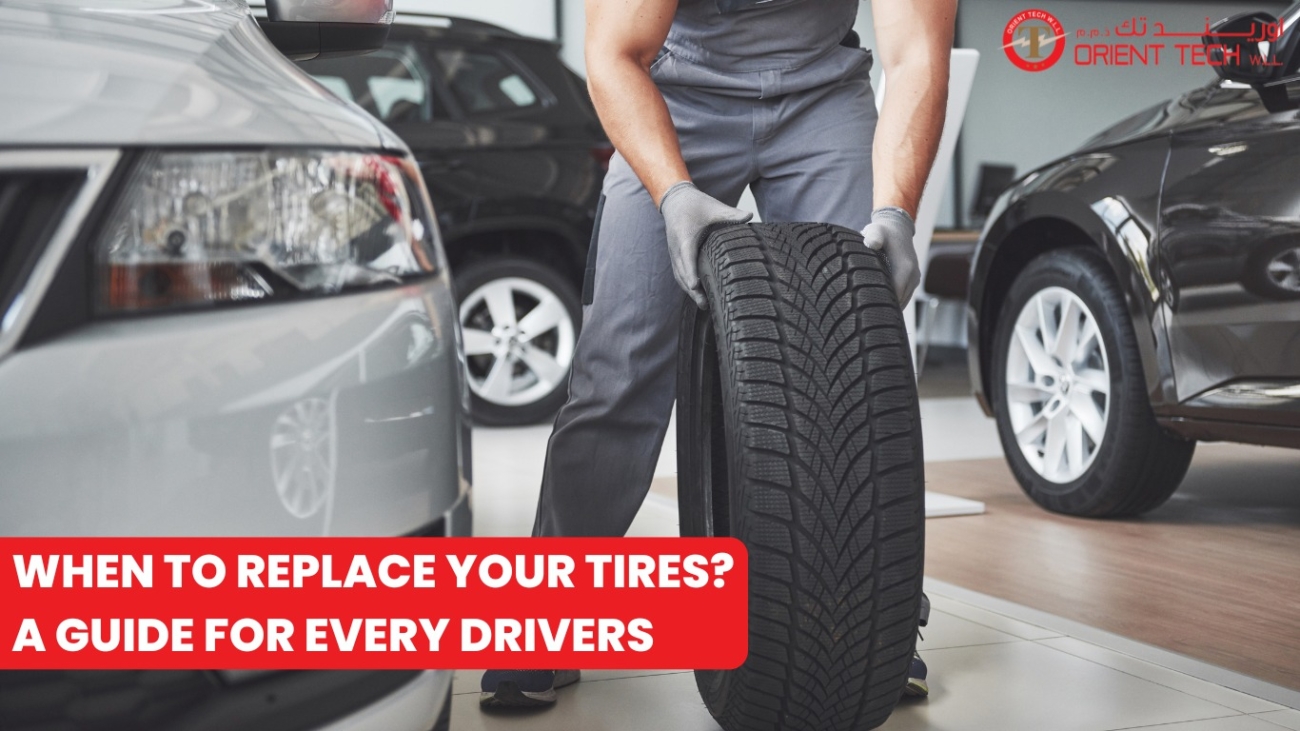Tires are one of the most critical components of your vehicle, ensuring safety, performance, and efficiency on the road. Yet, they’re often overlooked until a problem arises. Knowing when to replace your tires is essential for maintaining optimal driving conditions and avoiding potential hazards. In this guide, we’ll explore the key signs that indicate it’s time to replace your tires and offer tips to keep them in peak condition.
Why Replacing Tires Matters
Your tires are the only part of your car that comes into direct contact with the road. They influence how your vehicle handles, brakes, and maintains traction in various conditions. Worn-out tires compromise safety and efficiency, increasing the risk of accidents and reducing fuel economy. Replacing tires at the right time ensures:
Safety: Proper tread depth prevents skidding and improves control.
Performance: Healthy tires maintain optimal handling and braking performance.
Longevity: Regular replacement can protect other vehicle components from premature wear.
Key Signs It's Time to Replace Your Tires
Tread Depth is Below Safe Limits
The tread on your tires provides traction and channels water away to prevent hydroplaning. As the tread wears down, the tire’s ability to grip the road diminishes. Most experts recommend replacing tires when the tread depth reaches 2/32 of an inch. A simple way to check is with the penny test:
- Insert a penny into the tread with Lincoln’s head facing down.
- If you can see all of Lincoln’s head, it’s time to replace your tires.
Visible Cracks or Bulges
Uneven Wear Patterns
Age of the Tires
Frequent Loss of Air Pressure
If your tires regularly lose air despite proper inflation, it may signal internal damage or punctures that are beyond repair.
Poor Driving Experience
If your vehicle feels unstable, vibrates excessively, or struggles to handle wet or icy roads, your tires may no longer be roadworthy.
How to Extend the Life of Your Tires
- Check Tire Pressure Regularly Proper inflation prevents excessive wear and improves fuel efficiency. Use a tire pressure gauge monthly and adjust according to your vehicle’s specifications.
- Inspect Tires Periodically Look for cracks, bulges, embedded objects, or other visible damage. Address issues promptly to avoid further damage.
- Rotate Tires Every 5,000–7,500 Miles Rotating your tires ensures even wear across all four wheels, maximizing their lifespan.
- Keep Your Vehicle Aligned Misaligned wheels cause uneven tire wear and impact handling. Have your alignment checked annually or if you notice uneven tread wear.
Why Choose Orient Tech for Your Tire Needs?
Choosing the right tire provider is as important as selecting the right tires for your vehicle. Orient Tech stands out as a trusted name in the industry, offering unmatched quality, expertise, and customer care. Here’s why Orient Tech should be your top choice for all your tire needs:
- Extensive Selection of High-Quality Tires
- Competitive Pricing
- Advanced Technology and Innovation
- Exceptional Customer Service
- Eco-Friendly Practices
Conclusion
Knowing when to replace your tires is a crucial aspect of vehicle maintenance that directly impacts your safety and driving experience. Regularly inspecting your tires for wear, damage, and age ensures that you stay ahead of potential issues before they escalate. At Orient Tech W.L.L., we understand the importance of tire safety and provide expert guidance to help you identify key signs like tread depth, sidewall damage, and uneven wear, enabling you to make timely decisions for tire replacement and maintain optimal vehicle performance.
Tire longevity also depends on your driving habits, road conditions, and routine maintenance. Take proactive steps such as checking tire pressure, rotating tires, and ensuring proper alignment to maximize their lifespan. Orient Tech W.L.L. offers high-quality tire maintenance products and expert advice to keep your vehicle in top condition.
 +974 55641343
+974 55641343  info@orienttech.com.qa
info@orienttech.com.qa
 +974 4451 2997
+974 4451 2997
